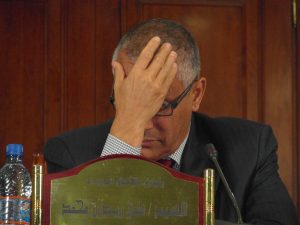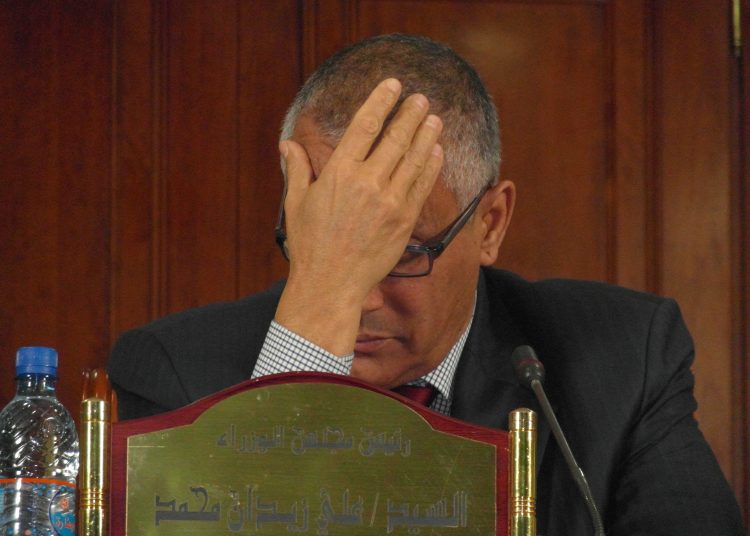By Sami Zaptia.

Tripoli, 23 February 2013:
In an expanded speech to all the heads of Libya’s Local Councils held this morning at . . .[restrict]the Radisson hotel in Tripoli, Prime Minister Ali Zeidan set out his vision and views on local government.
The meeting was attended by members of the GNC, the Minister for Local Government Abubaker al-Hadi and the Minister of Industry Sulieman Fituri.
Zeidan thanked the local councils and their leaders for “spontaneously performing their duties as loyal citizens in administrating the local affairs in Libya during the liberation war and until the present stage. This contributed to the safeguarding of security” he added, and “helped the realization of the peaceful life today in the community.”
The Prime Minister then went on to announce that the development of the administrative system for the municipalities that will be led by the General Secretary for Municipalities until the elections of mayors – in view of the long term work that the state needs in the regions, especially the commencement of widely spread projects.
“We need to rearrange local administration and control and put it in the context of administrative, specified, codified tasks and functions and that exist in their areas and regions that determine the law or resolution, which is something essential.”
Zeidan further added that the “solid and sober administrative system that had existed before Qaddafi’s September coup, was a municipal system. There was the Ministry of Municipalities and the Ministry of Local Government, where there were municipalities and there were provinces scattered in all the regions of the country. And these were managed properly with interest in the utilities and infrastructures and all what we now call the most active sector in all areas.
He explained that the “province was headed by the Governor, a particular government, and members of the Board and managers maintained their sectors, and the municipality as well, and to be elected members of the municipal council and appoint a council leader. That was the system, and it was a solid and consistent system.”
He added that the Qaddafi regime had destroyed this well functioning system of local government. He felt that the Libyan public were now entitled to good functioning, decentralised, local government which could better deliver services locally. He pointed out that he did not see the new local council law necessarily meaning the end of the current local councils. In fact, he thought that local councils could become the “starting point” for new local government. He admitted that there will be “sensitivities and frictions, which will hamper the” rollout of the local government system.
Zeidan quite readily admitted that local councils may not be the panacea. He admitted that after experimenting with them we may find out the centralization was not the cause of many problems. He explained that the creation of local government was not an end in itself – but that the aim was the delivery of services to citizens effectively in their locality.
It is to be noted that Prime Minister Ali Zeidan has faced opposition to his demand that he selects Municipality leaders by both the current local councils and the GNC. Both have felt that these should be elected. Zeidan points out that under the Kingdom days they were appointed by the government – because they are part of the executive, implementing government policy.
As he alluded to in his speech above, he felt that in its current state, there is no time for electing Mayors now – which he agrees should be elected.
Reading between the lines, it is quite clear from Zeidan’s long charming offensive on the Local Council heads that he sees effective heads of local Municipalities as a key to his ability to execute policy and deliver services to the various regions.
He feels it is important in answering all the demands of and for better government, especially in places such as the South like Sabha and beyond, Kufra and, of course, the hitherto uncontrollable Benghazi.
Zeidan is hanging quite a bit of political weight on the local government issue. With the announcement of the 2013 budget expected soon, he is desperate that a local government system is in place to be able to disperse some of the budget money.
If his local government system does succeed as he has painted it, it will help solve many social, administrative, political, economic and security matters. If it does not – it could backfire on his government badly. [/restrict]









